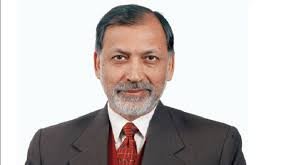NIIT University recently launched its MBA programme called NU-MBA and commenced admissions for its first batch. The programme, which NIIT touts as the ‘new age MBA’, aims to groom the new age CEO for 2020 by imparting holistic training in a broadbased intellectual environment, according to Rajendra Pawar, founder of NIIT University. Edited excerpts:
How much investment will go towards setting up of the university?
We want NIIT University to be a self-financing one and that can be done through fees and research output. We will spend around Rs 1,000 crore in these 10 years to build the varsity. Of this, almost Rs 100 crore has been spent to build 10 per cent of the capacity. The founders have put in some initial token amount and raised loans simultaneously.
What’s so different about what you call the new age MBA?
This programme will teach all streams like strategy, marketing, HR among others but what makes it unique is that besides the intellectual individual, we will impart holistic training in an intellectual environment who will be ready for professional life.
The differentiating factor is our CEO mentorship programme. It is built on the premise that experiential inputs, macro-level insights and networking opportunities are all immensely necessary for an MBA student.
As part of this, a group of four students will be assigned a mentor from the industry throughout the programme who will talk to them about the industry in particular and other things in general. These mentors are from different walks of life like Pramod Bhasin, Raghupati Singhania, Manoj Kohli, among others.
But what about full-time faculty members?
We have a four-layer concept of faculty- founding professors, mentor professors, area leaders and young PhDs. So, mentor professors are people in their 60s who are passionate about their subject and are able instill that passion in the students also.
This will be full time faculty and they will nurture the young PhDs (faculty). The founding professors will not be on campus full time but will visit often. Then, there will be regular professors or area leaders. Overall, we plan to have about 600 faculty members for 5,000 students over the next 10 years with a faculty-student ratio of about 1:12.
You say the university and its programmes will be different from existing ones
Yes. This is so because our university and its programmes are based on the four core principles of industry linked employability, technology based, research driven and seamlessness. So, for us the entire campus is a laboratory and we want to be the first of the post-industrial universities. This means that we will offer what a knowledge society of today needs and not what the industrial society of the previous era wanted.
How many students are studying at the university?
We have 39 students in the founding batch-29 in B.Tech and 10 in M.Tech. We plan to add 500 students every year so as to have the complete campus up and running in 10 years with a capacity of 5,000 residential students and another 1,500 day scholars.
As of now, a hostel for 450 students is ready besides we have a classroom capacity for 1,600 students. One batch of B.Tech, M.Tech and computer science is already under way and there are 60 students in every class. The two-year MBA programme will be launched this year.
Are there other programmes in the pipeline?
As of now, we have computer science and management, but going ahead we plan to launch bioinfomatics and educational technology like design, languages and creative arts. There are a few more masters’ programmes in the offing but we want to strengthen the liberal arts area by focusing on behavioural sciences, sociology, philosophy, psychology and traditional knowledge. We will follow the 4-2-1 year approach which is four years for graduation, two for post-graduation and one year doctoral programmes.
You may also like:
- CSR in the West Has Failed and Developing Countries Need to Avoid Repeating Their Mistakes: Dr Wayne Visser
- Revolutionizing healthcare in rural India: Huzaifa Khorakiwala, CEO, Wockhardt Foundation
- Auro University is a CSR contribution to education of JHM Hotels: Dr Rana
- I have a dream to train one lakh youngsters every year in vocational training: Naveen Jindal
- ‘Sustainability’s a difficult subject, beyond just CSR’







